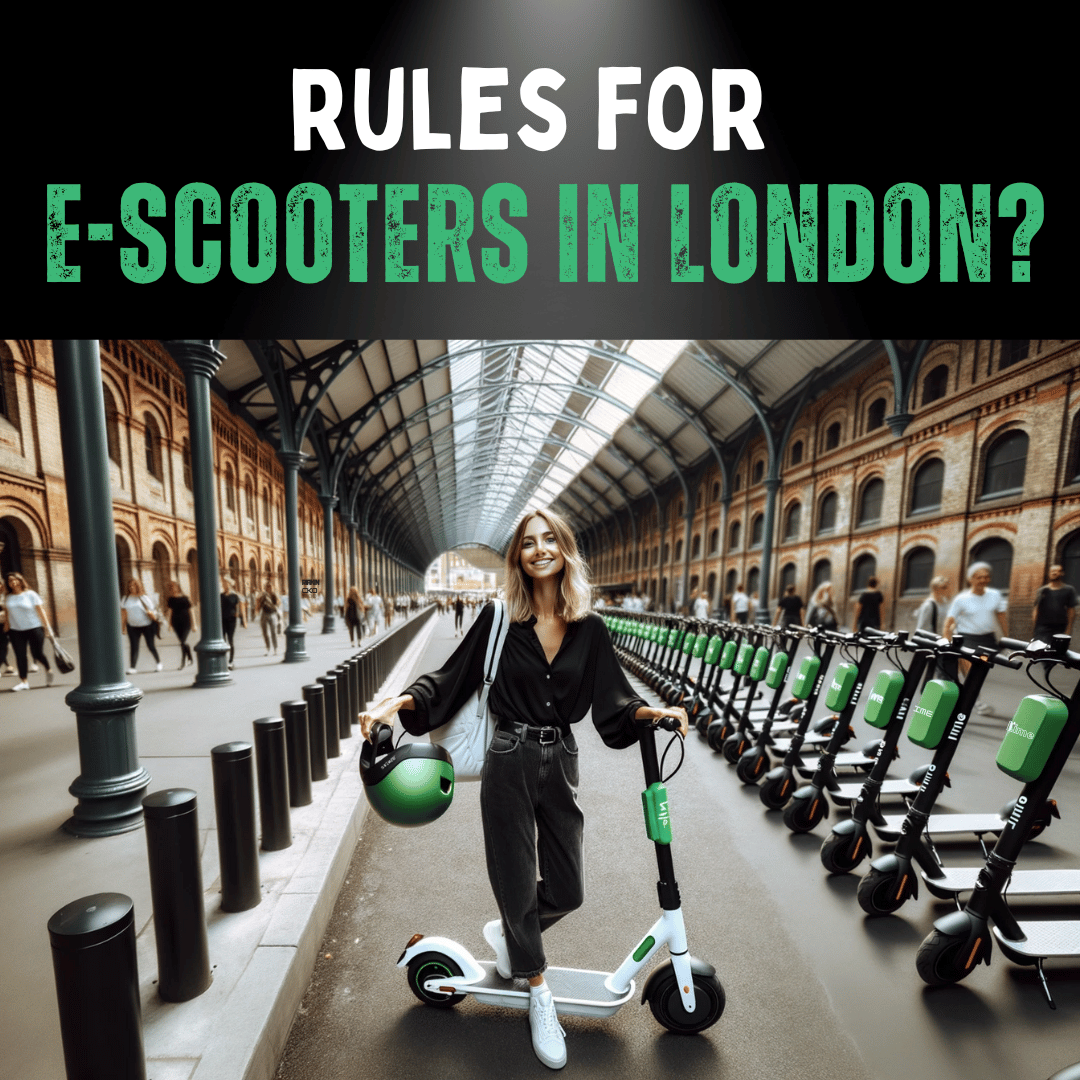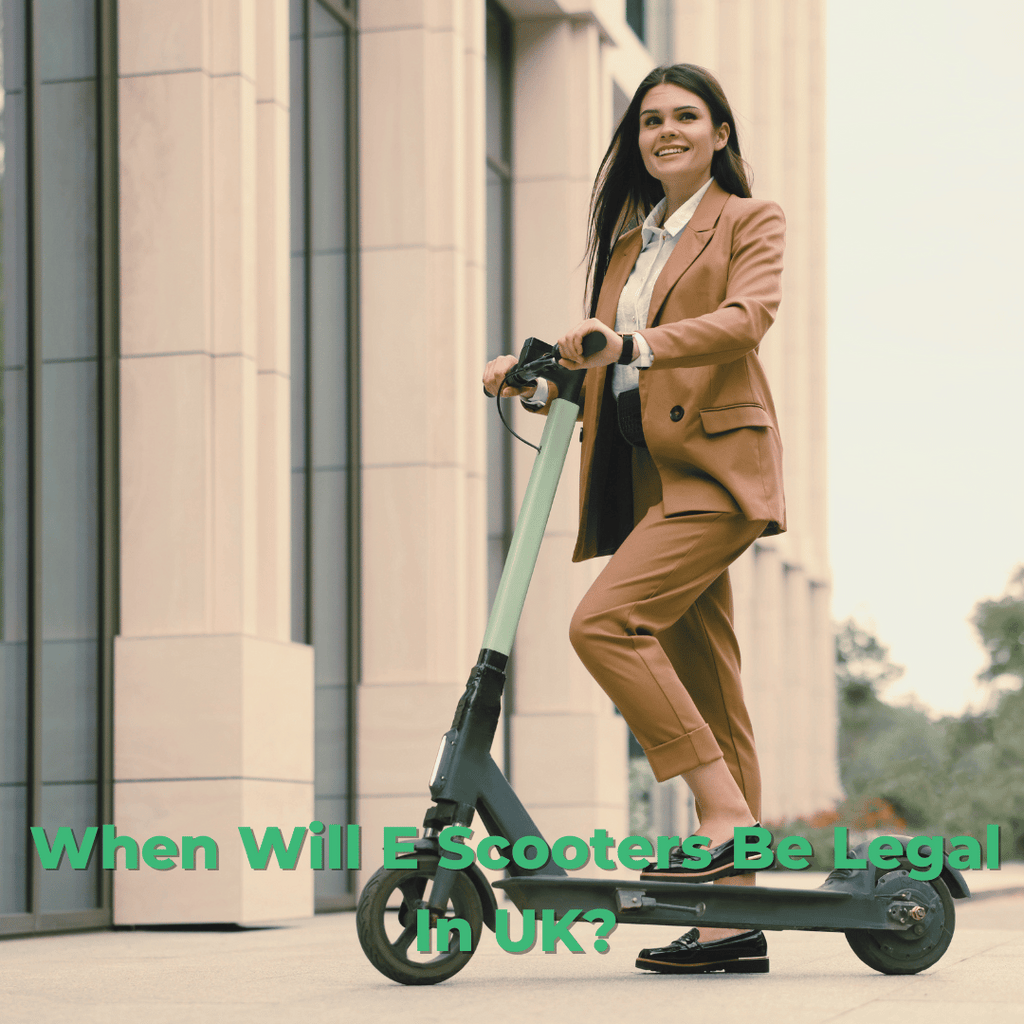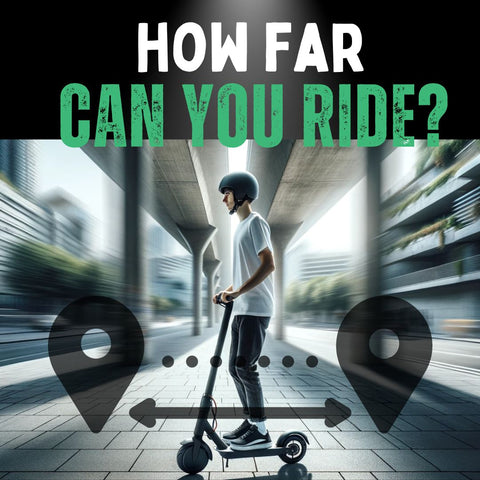
Updated: 20.05.25
London’s streets are buzzing with electric scooters, a modern addition to the city’s iconic transport scene. But are they legal, and what rules govern their use?
This guide dives into the regulations for e-scooters in London, covering rental schemes, private use, safety, and more.
1. Electric Scooter Regulations in London
Key E-Scooter Rules
Riders must be 18+ with a provisional driving licence. E-scooters are capped at 12.5mph, reduced to 8mph in 'go slow' zones, and stop in 'no-go' areas for safety.
2. Legality of E-Scooters in London
Rental E-Scooters
Since June 2021, rental e-scooters have been part of a Department for Transport (DfT) trial, similar to Santander Cycles.
- Age & Licensing: Riders must be 18+ with a provisional driving licence.
- Speed Limits: Capped at 12.5mph, with 8mph in designated 'go slow' zones.
- Safety Standards: Only approved operators with rigorous safety checks can offer rentals.
Private E-Scooters
Private e-scooters are legal only on private land with permission. Public roads, pavements, cycle lanes, and canal towpaths are off-limits due to legal restrictions.
- Penalties: Riding on public roads without insurance can result in a £300 fine and 6 points on your licence.
- Prohibited Areas: Pavements, cycle lanes, towpaths, and public transport are banned.
Related: When Will E-Scooters Be Legal in the UK?
3. Safety Protocols for E-Scooter Riders
Safety is paramount when riding e-scooters in London.
- Helmets: Wear a helmet to protect your head.
- Road Awareness: Exercise caution on wet or busy roads.
- Solo Riding: E-scooters are for single riders only.
- Sobriety: Never ride under the influence of alcohol or drugs.
- Training: Take advantage of free training sessions offered by some operators.
| Safety Protocol | Description |
|---|---|
| Helmets | Wear a helmet for head protection. |
| Road Awareness | Be cautious on wet or busy roads. |
| Solo Riding | E-scooters are for single riders only. |
| Sobriety | Avoid riding under the influence. |
| Training | Join free training sessions for better control. |
Related: Are Electric Scooters Legal on UK Roads?
4. E-Scooter Maintenance and Care
Keep your e-scooter in top condition with these tips:
- Inspections: Check brakes, lights, and parts before riding.
- Battery Care: Avoid overcharging and store in a cool, dry place to extend lithium-ion battery life.
- Tyre Maintenance: Monitor for punctures and maintain proper tyre pressure.
- Cleaning: Wipe with a damp cloth, avoiding electrical components.
Related: 10 Tips for Maintaining Your Electric Scooter
5. E-Scooter Trends and Innovations
The e-scooter industry is evolving to meet London’s transport needs:
- Smart Features: Apps enable remote locking, ride tracking, and integration with TfL systems.
- Battery Advances: Newer lithium-ion batteries offer longer ranges and faster charging.
- Design Upgrades: Foldable models and adjustable handlebars enhance convenience.
- Safety Tech: Improved brakes, LED lights, and turn indicators boost safety.
Related: Electric Bikes vs. Electric Scooters
6. Where Can You Ride E-Scooters?
- Allowed Zones: Rental e-scooters are permitted in specific boroughs; check operator apps for maps.
- Prohibited Areas: Avoid 'no-go' zones where scooters automatically stop.
Related: How Far Can I Ride My E-Scooter?
7. Legal Consequences of Misuse
- Fines and Points: Riding illegally can lead to a £300 fine and 6 points for no insurance, or £100 and 3–6 points for no licence.
- Scooter Seizure: Police may confiscate illegally used scooters.
- Criminal Record: Serious violations, like riding under the influence, may result in a criminal record.
- Insurance Issues: Accidents without valid insurance could lead to significant personal costs.
8. E-Scooters and Sustainability
- Eco-Friendly: E-scooters produce zero emissions, reducing London’s carbon footprint.
- Reduced Congestion: They help ease traffic and support cleaner air initiatives.
9. Benefits and Challenges of E-Scooters
Benefits
- Green Transport: Zero-emission alternative to cars.
- Cost-Effective: Affordable for short commutes.
- Compact: Easy to manoeuvre and park.
- Flexible: Integrates with TfL for seamless travel.
Challenges
- Safety Risks: Requires adherence to guidelines to protect riders and pedestrians.
- Weather Exposure: Rain can make riding uncomfortable or unsafe.
- Range Limits: Battery life restricts longer trips.
- Legal Complexity: Evolving regulations can confuse riders.
Conclusion
E-scooters are transforming London’s transport landscape, offering a green, flexible option for navigating the city. Rental scooters are legal in approved zones, but private ones remain restricted to private land. Stay informed, prioritise safety, and enjoy the ride!
Frequently Asked Questions
Are electric scooters legal in London?
Rental e-scooters are legal in specific boroughs under a DfT trial, but private e-scooters are banned on public roads and pavements.
Who can ride a rental e-scooter in London?
Riders must be 18+ with at least a provisional driving licence. Speed is capped at 12.5mph, or 8mph in 'go slow' zones.
What safety measures should I follow when riding an e-scooter?
Wear a helmet, ride solo, stay sober, and be cautious on wet roads. Consider operator training for better control.
What happens if I ride a private e-scooter illegally?
You risk a £300 fine, 6 licence points for no insurance, or £100 and 3–6 points for no licence. Your scooter may be seized.
How can I maintain my e-scooter?
Inspect brakes and lights regularly, care for the lithium-ion battery, maintain tyre pressure, and clean without wetting electrical parts.
Get in Touch 🚀
Loved our guide on electric scooter rules in London? Want more eco-friendly transport tips?
We’re here for all your ride-on questions! 🚗💨
Explore more at RiiRoo.com.
Prefer to chat? Try our Live Chat for quick answers!










Share:
Are Electric Scooters Bad For The Environment?
Can E Scooters Be Used On Pavements in 2025?